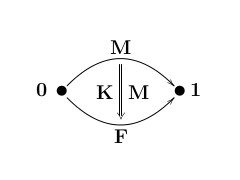

On the 17th of January 2019, at 10:15 a.m.
A.M. Ishkhanyan (Ins. Phys. Research NAS of Armenia)
will give a talk on
" Solutions of the Schrodinger equations in terms of the Heun functions"
Abstract
A.M. Ishkhanyan (Ins. Phys. Research NAS of Armenia)
will give a talk on
" Solutions of the Schrodinger equations in terms of the Heun functions"
Abstract
We review the cases for which the 1D stationary Schrödinger equation is solved in terms of the general and (multi-)confluent Heun functions. We present the possible choices for coordinate transformation that provide energy-independent potentials that are proportional to an energy-independent continuous parameter and have a shape independent of that parameter. In contrast to the hypergeometric case, no Heun potential can in general be transformed into another one by specifications of the involved parameters.
We show that there exist in total 29 independent Heun potentials. There are eleven independent potentials that admit the solution in terms of the general Heun functions, for nine independent seven-parametric potentials the solution is given in terms of the single-confluent Heun functions, there are three independent double-confluent and five independent bi-confluent Heun potentials (the six-parametric Lemieux-Bose potentials), and one tri-confluent Heun potential (the general five-parametric quartic oscillator).
There are several independent potentials that present distinct generalizations of either a hypergeometric or a confluent hypergeometric classical potential, some potentials possess sub-cases of both hypergeometric types, and others possess particular conditionally integrable ordinary or confluent hypergeometric sub-potentials. We present several examples of explicit solutions for the latter potentials.
We show that there exist other exactly or conditionally integrable sub-potentials the solution for which is written in terms of simpler special functions. However, these are solutions of different structure. For instance, there are sub-potentials for which each of the two fundamental solutions of the Schrödinger equation is written in terms of irreducible combinations of hypergeometric functions. Several such potentials are derived with the use of deformed Heun equations. A complementary approach is the termination of the hypergeometric series expansions of the solutions of the Heun equations.
The seminar takes place on Thursdays from 10:15 a.m. to
12:00 in the room 2.23 of the main building of the
Faculty of Physics (the 2nd floor), Pasteur Str. 5,
Warszawa.
Additional information can be found on the webpage http://oldwww.fuw.edu.pl/KMMF/sem.czw.przedp.html.
Additional information can be found on the webpage http://oldwww.fuw.edu.pl/KMMF/sem.czw.przedp.html.